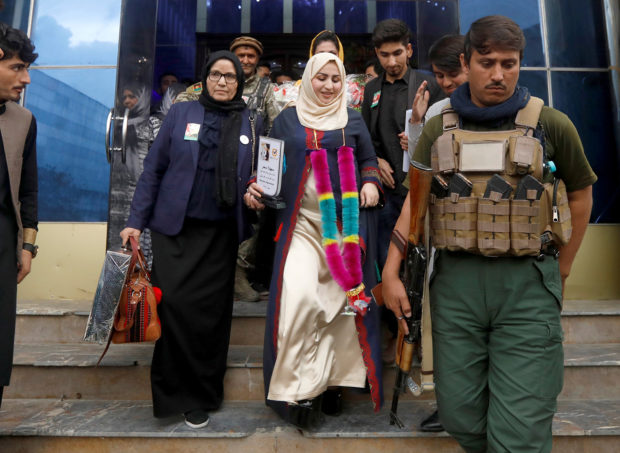When Afghan citizens go to the polls to vote in critical parliamentary elections Saturday, they won’t be able to cast ballots in many parts of the country thanks to a rising Taliban insurgency that has promised election day attacks.
For the first time since the U.S.-led invasion of Afghanistan in 2001, voting will not take place in every province, The Wall Street Journal reported Thursday.
In Ghazni, a strategically vital province just south of Kabul, polling will be completely closed because security forces can’t prevent attacks by Taliban and other Islamic militants. Nationwide, authorities had planned to operate 7,384 polling places, but only 5,074 will be open on election day.
Kabul has deployed more than 50,000 troops and police officers to boost election security around the country, but the government has been unable to stem the violence ahead of the elections. Nine political candidates have been assassinated and hundreds of civilians killed in election-related attacks in recent months.
The Taliban has stepped up its opposition to democratic elections, denouncing them as a product of foreign imperialism that contradicts Islamic teaching. In a statement released Thursday, the group proclaimed the elections “have no Islamic or Afghan essence but are a foreign plot to prolong occupation.”
“Consequently, preachers and prayer leaders must inform their constituency, while tribal leaders and influential figures must prevent participation by the public,” the statement said, according to Reuters.
The Taliban’s opposition to elections is more than rhetorical. The group has vowed to attack security forces on election day with the aim disrupting the vote. (RELATED: Top US General In Afghanistan Survives Taliban Sneak Attack That Kills Head Of Afghan Police)
“We’ll try not to hurt civilians, but we’ve warned them that they’re obliged not to participate in the election,” Taliban spokesman Zabiullah Mujahid told TheWSJ. “If they do so and something happens, it’s their fault.”
Saturday’s elections come at the end of a bloody summer fighting season that saw the Taliban inflict heavy casualties on Afghan security forces. In several instances, Taliban fighters completely overransome of the Afghan army’s most highly trained units, further demoralizing a force already beset by corruption and desertion problems.

Female Afghan parliamentary election candidate, Suhaila Sahar, leaves her office during an election campaign in Kabul, Afghanistan October 8, 2018. Picture taken October 8, 2018. REUTERS/Omar Sobhani
Afghanistan has held five national elections since 2001. While marred by fraud, the elections are seen by Washington and its Western allies as an important mechanism for handing over responsibility for governance to local Afghans.
But progress toward that goal has stalled under pressure from a resurgent Taliban and a rising local Islamic State affiliate. The security environment for civilians is arguably worse today than at any time since 2001 — more than 2,790 civilians have been killed so far in 2018, the highest mid-yearly total since the war began, according to the United Nations.
Disillusionment over the violence is reflected in tepid enthusiasm for the upcoming elections. Out of about 15 million eligible Afghan voters, only 8.8 million are currently registered, and millions of those are thought to be fraudulently recorded.
Send tips to will@dailycallernewsfoundation.org.
All content created by the Daily Caller News Foundation, an independent and nonpartisan newswire service, is available without charge to any legitimate news publisher that can provide a large audience. All republished articles must include our logo, our reporter’s byline and their DCNF affiliation. For any questions about our guidelines or partnering with us, please contact licensing@dailycallernewsfoundation.org.


